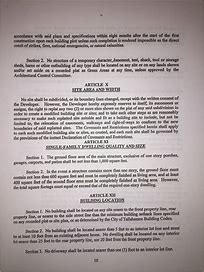Below is a review of the posts (on Facebook, LinkedIn, and Twitter) from the past week. You can check out the full posts by clicking on the links.

In the post on Sunday 8/7/2022 we learned about updated EEOC Guidance: workplace COVID testing must be ‘Business Necessity’. This applies when employers are deciding whether to screen employees for COVID-19. Employers now are advised to “assess whether current pandemic circumstances and individual workplace circumstances justify viral screening testing”. This differs from the former Guidance (which is discussed in the post) and now is based on business necessity. And what factors can that include? See the post. The Guidance is also clear that based on CDC saying that antibody tests cannot determine whether someone is currently infected or is immune, an employer cannot require an antibody test as a requirement before an employee can return to the workplace. As discussed in the post, the updated Guidance also deals with conditions under which testing may occur, when a job offer may be rescinded due to COVID, and more (including the May update relative to bonuses and incentives related to vaccination).
TAKEAWAY: Employers need to know what they can or cannot, or may, do relative to COVID and their workplace; the easiest way is to consult with an employment lawyer.

The post on Monday 8/8/2022 told us about a federal civil rights complaint filed against Dick’s Sporting Goods for discriminating against moms, using illegal employment quotas. After the Supreme Court’s decision in Dobbs, Dick’s announced a benefit of up to $4,000 in travel reim-bursement for an employee, spouse, or dependent, along with one support person, to obtain an abortion. The actual message from Dick’s is embedded in the post. One issue addressed in the complaint filed with the EEOC is that Dick’s does not offer a similar paid benefit to a mother who has her baby, such that this benefit is alleged to be unconstitutional. But that is not the only basis for the complaint; the other bases are listed in the post (where there are also links to the underlying letters to Dick’s and the EEOC).
TAKEAWAY: When trying to right what is deemed a wrong, or unwanted, an employer must still ensure that its actions are legal in every way. Even unintended violations will come out.

The post on Tuesday 8/9/2022 explained that “Master association” documents are usually controlling authority. We asked if this is true in PA too? The first thing is to understand what a master association is. It is one that provides a service or amenity to all owners by virtue of membership. Owners might also be in other “sub” associations too and pay dues/assessments to both the master and sub. Both the master and sub association will have its own governing documents. However, the usual timing and precedence of those documents is explained in the post. And yes, even though the post does not deal with PA law, the same principles apply. And the example given in the post would also hold true under PA law.
TAKEAWAY: Owners, whether individually or as Board members, must know what documents govern their membership in what association(s), including what rights and obligations they might have. Consultation with a community association lawyer is recommended.

The post on Wednesday 8/10/2022 told us that Walmart fired new mom because her needs were ‘problematic,’ lawsuit says. The suit was filed in FL but under federal law (Title VII), so let’s look at the allegations. The plaintiff had worked in the deli department and as a baker since December 2019 and claims she was an excellent worker. She gave birth in 2020 and then needed to take breaks to pump breast milk. She alleged that managers harassed her about pumping and that the place wherein they told her to pump was inappropriate and uncomfortable, all as described in the post. So she gave her manager a note from her doctor asking for reasonable accommodation. The manager’s alleged response is in the post. She was later fired. And the coincidence of the timing of her firing? See the post. After the discharge she filed a charge with the EEOC and state Human relations Commission. The latter issued a determination (discussed it eh post) and in May 2022 the EEOC granted her the right to sue, which she did in July. Walmart denied the allegations and gave a different reason for the discharge – see the post.
TAKEAWAY: (almost) all companies are subject to federal anti-discrimination laws and will be held to account for violations.

In the post on Thursday 8/11/2022 we read about tips for documenting employee performance. There is no question as to whether you should do this, but merely tips for how to do it (better). Documentation can provide a defense in the future for some unplanned and unforeseen charge or litigation, so ensure it is done while it’s fresh. So let’s get to the tips. First, when there is poor performance or unacceptable behavior, it should be addressed as soon as possible (and not left to fester or go unaddressed). Follow the (disciplinary) policy that should be in place. As to some of those possible steps, see the post. Things that are normally in discipline include the name and position of the employee, the name and title of the person writing the discipline, the date of the discipline, the offense/issue, the policy violation (if applicable, and with a cite to the location in the handbook), and more as listed in the post. Try to ensure that all disciplinary documents are uniform as to length and type of content (as described in the post). The discipline might also include an action or performance (improvement) plan. Tips for good plans are also in the post. Make sure that any discipline notes the repercussions for a failure to improve/remedy the behavior – deal with that as noted in the post. All of what we’ve said above relative to discipline also holds true for employee evaluations (also called performance reviews) – see the post for more details. An evaluation usually has certain content, the most common of which is listed in the post. There are usually places for comments that let the employee know what s/he is doing right or wrong. Don’t sugarcoat; do make sure that check marks or other scaled marks match the comments (as discussed in the post). And what if the employee does not agree? See the post. One trap to watch out for and how to avoid falling into it? See the post. And make sure the evaluation is fully dated and signed for the reasons noted in the post.
TAKEAWAY: Document document document; do it on a timely basis and uniformly from employee to employee. Get input from an employment lawyer if you are unsure of whether something should be documented.

The post on Friday 8/12/2022 said But it was approved: outward swinging front door at center of dispute between condo owners, association. The front door was rusting, so the owners replaced it before hurricane season. The salesperson suggested a door that opens outward for a good reason: see the post. The owners sent their plans to the property manager (with a note in capital letters as described in the post). The plans were approved conditioned on the door being painted and the owners obtaining a municipal permit. So they got a permit, painted, and installed the door. Great, right? Well, no. They then got a letter from the association’s attorney telling them the door was a violation of the association’s rules. How that impacted them is noted in the post. They sent the attorney a copy of the approval letter and received a response with the 2 options listed in the post. A few more (heated?) back-and-forth communications (described in the post) and it got resolved.
TAKEAWAY: Things that should be simple and straight-forward don’t always end up that way in a condo or homeowners’ association – know your rights and engage a knowledgeable community association lawyer.

Finally, in the post yesterday 8/13/2022, we saw that Georgia Pacific will face retaliatory claims from HR employee, court says. The appeals court dismissed claims that HR employees are exempt from federal laws prohibiting retaliation against those who report discrimination and reinstated the suit. Marie Patterson, a former HR director, had accused Georgia Pacific of firing her after learning that she had testified in a pregnancy discrimination suit against her former employer (not even George Pacific!). The prior suit had been filed by Marie alleging that she had been fired illegally. How the appeals court characterized her testimony vis-à-vis Title VII protection, and its analysis of how the trial court erred, is in the post. The EEOC supported Marie’s position.
TAKEAWAY: Whether employer or employee, know your rights and obligations under applicable law so that you are not caught flat-footed and on the wrong side of legal.

 York, Pennsylvania 17403
York, Pennsylvania 17403